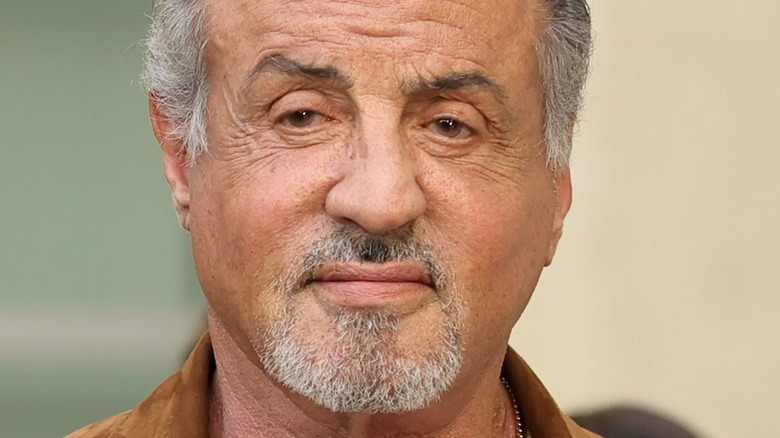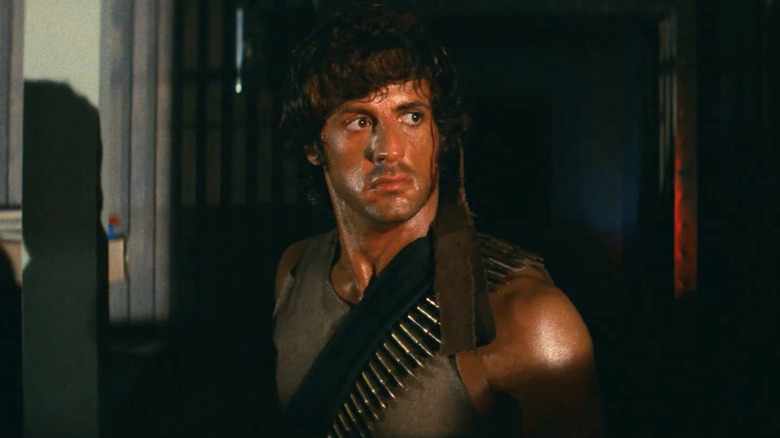Sylvester Stallone Interviewed 20 Veterans To Nail A First Blood Scene's Accuracy
There are many memorable moments in the critically acclaimed 1982 feature "Rambo: First Blood," and many fans of the action-packed saga's first chapter may not realize what lengths co-writer and star Sylvester Stallone went to in order to ensure the film's overall message was heard loud and clear.
Out of all the movies Stallone has starred in throughout his career, there is no denying that the talented actor has played a few characters that he has shown tremendous dedication to, especially John Rambo. The actor has played the role in five pulse-pounding feature films, and a lot of credit for the franchise's success can arguably be given to the first entry. "First Blood" solidified Rambo's franchise potential with plenty of action-packed sequences and, at the same time, told a gripping story about a war-torn veteran dealing with the horrors of his time overseas and the prejudice of citizens whose rights he was only trying to protect. The exhilarating affair culminates when Stallone's character breaks down, and his brilliant, eye-opening monologue lays out a powerful glimpse into the horrors of war and the aftermath of dealing with that trauma.
There is no denying that "First Blood" is a film fans of Stallone hold in high regard, but many of them might not know that in order to get a crucial scene as authentic as possible, the Golden Globe winner made sure to talk to the brave individuals who served their country.
Rambo's iconic monolgue was inspired by real war veterans
When discussing his career, Sylvester Stallone was asked about the film "Rambo: First Blood" — specifically about the scene at the end of the film where Rambo reveals things about his time at war and the difficulties of Post Traumatic Stress Disorder back when little was known about the subject, especially to audiences. "That scene was a tough one to get past the producers. They didn't want it," Stallone revealed during an interview with The Hollywood Reporter. "I was supposed to be shot and die. And I go, 'There are a lot of veterans who are going to look at this and go, 'So my only hope is to kill myself?' I can't do that. I did 20 interviews with veterans and I compiled it into that moment, all stream of consciousness, with everything just pouring out. I want people to take away some sense of hope when they leave the theater. I don't want my heroes to die." Not only did Stallone fight to get the ending he thought was right for the story and character, but he also took the time to make sure the voices of those who experienced the traumas of war were heard.
The authentic and cathartic climax earned the character praise from Janet Maslin, a film critic for The New York Times, who commended the way the persona was showcased as a "tormented, misunderstood, amazingly resourceful victim of the Vietnam War, rather than as a sadist or a villain." The ending of "First Blood" was undeniably a defining moment for Rambo that came from a very real place and helped raise awareness about the issue of PTSD.

